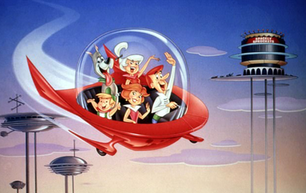
CES 2024 concluded last week, with the theme "AI for All," highlighting a wide array of AI-infused technologies.
Chip makers are developing new processors with dedicated "Neural Processor Units" (NPUs) for AI-enhanced PCs. We will hear the term AI PC more in the near future.
Flying cars were a highlight of the show. Their presence suggests that we might soon see flying cars become a reality, which raises the question of whether we will need a pilot's license to drive—or fly—a flying car?
The event also showcased robots designed for various purposes:
- Robots capable of climbing stairs to deliver packages.
- Robots designed to assist people with vision impairments.
- Household assistant robots for domestic tasks.
- Yard robots for garden maintenance.
- Dog Companion Robots.
Additionally, AI personal assistants like the Rabbit R1 were introduced, retailing for couple of hundreds.
There were numerous other AI-related announcements. For instance:
- New technology uses AI to upscale SD content to 8K resolution. Can you tell the difference between 4K and 8K?
- AI-powered birding binoculars can help enthusiasts identify over 9,000 bird species. Birders will love it.
- An AI-powered stroller can rock your baby, though it might not seem necessary to use AI for such a task.
- A smart mirror that claims to detect signs of depression. Really ?
- A grill that uses AI to cook the perfect steak. Do you trust it ?
- An AI Smart Belt that claims to help people with vision problems navigate the world. I would applaud it if it truly can do the job.
For new parents, an intriguing device is the AI-powered baby cry translator, which can decode a baby's cries to determine if they are hungry, uncomfortable, tired, or in need of a diaper change. However, I'm not convinced enough to "buy" into it.
So, it appears that IoT is indeed gradually transforming into AIoT. AIoT represents a natural progression of IoT technology as devices become smarter and more context-aware, providing more value to the users and industries that adopt them.